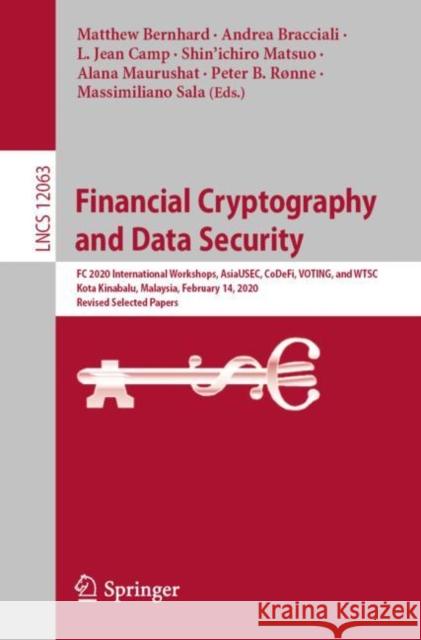Financial Cryptography and Data Security: FC 2020 International Workshops, Asiausec, Codefi, Voting, and Wtsc, Kota Kinabalu, Malaysia, February 14, 2 » książka
topmenu
Financial Cryptography and Data Security: FC 2020 International Workshops, Asiausec, Codefi, Voting, and Wtsc, Kota Kinabalu, Malaysia, February 14, 2
ISBN-13: 9783030544546 / Angielski / Miękka / 2020 / 622 str.
Financial Cryptography and Data Security: FC 2020 International Workshops, Asiausec, Codefi, Voting, and Wtsc, Kota Kinabalu, Malaysia, February 14, 2
ISBN-13: 9783030544546 / Angielski / Miękka / 2020 / 622 str.
cena 442,79
(netto: 421,70 VAT: 5%)
Najniższa cena z 30 dni: 424,07
(netto: 421,70 VAT: 5%)
Najniższa cena z 30 dni: 424,07
Termin realizacji zamówienia:
ok. 16-18 dni roboczych.
ok. 16-18 dni roboczych.
Darmowa dostawa!
Kategorie:
Kategorie BISAC:
Wydawca:
Springer
Język:
Angielski
ISBN-13:
9783030544546
Rok wydania:
2020
Wydanie:
2020
Ilość stron:
622
Waga:
0.89 kg
Wymiary:
23.39 x 15.6 x 3.3
Oprawa:
Miękka
Wolumenów:
01
Dodatkowe informacje:
Wydanie ilustrowane











